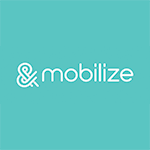Description

eDirectory

Eventcube
Comprehensive Overview: eDirectory vs Eventcube
To provide a comprehensive overview of eDirectory, Eventcube, and MemberGate, let’s delve into each product in terms of their primary functions, target markets, market share, user base, and key differentiating factors.
eDirectory
a) Primary Functions and Target Markets:
- Functions: eDirectory is an online directory software that allows organizations to manage and monetize their directories. It provides features for listing management, search and filtering, SEO tools, and payment processing.
- Target Markets: It is aimed at businesses, associations, and publishers who want to create and manage membership directories, classified directories, or online community hubs.
b) Market Share and User Base:
- eDirectory is recognized for its versatility and is used by various industries globally. While specific market share figures are not typically disclosed, it is considered a leading solution in the directory management space, especially for those looking for a customizable and robust platform.
c) Key Differentiating Factors:
- eDirectory stands out for its comprehensive feature set tailored to directory management and its ability to integrate monetization options. It offers a white-label solution with extensive customization and integration capabilities, making it appealing for organizations with specific branding requirements.
Eventcube
a) Primary Functions and Target Markets:
- Functions: Eventcube is a ticketing and events management platform. It provides tools for ticket sales, event registration, branded event websites, virtual events, and membership management.
- Target Markets: Its primary market includes event organizers, from small community events to larger-scale commercial events, particularly those who require a platform for both virtual and in-person events.
b) Market Share and User Base:
- Eventcube caters to a niche yet significant segment of the event management industry. While it may not have the massive market share of some larger ticketing platforms, it is valued for its focus on customizable and feature-rich solutions for diverse event types.
c) Key Differentiating Factors:
- Eventcube differentiates itself with its focus on complete brand control for users, allowing them to create fully branded ticketing and event experiences. It also supports complex membership and subscription models, which is not as common among other event platforms.
MemberGate
a) Primary Functions and Target Markets:
- Functions: MemberGate is a content management system (CMS) specifically designed for managing membership websites. It offers tools for member management, subscription billing, content access control, and community features like forums.
- Target Markets: It targets businesses and organizations that operate membership sites, such as associations, clubs, e-learning providers, and publishing companies.
b) Market Share and User Base:
- MemberGate is a specialized CMS with a loyal user base in the membership management sector. Its market share is not as extensive as general-purpose CMSs like WordPress, but it is highly regarded in niches that require secure and reliable membership features.
c) Key Differentiating Factors:
- MemberGate's strength lies in its specialization. It offers highly tailored tools for managing recurring billing and content protection, which are crucial for subscription-based business models. Its depth of features for member engagement and retention sets it apart from more generic CMS platforms.
Comparison
- Target Market Overlap: While there might be some overlap in terms of member or event-based needs, eDirectory and MemberGate focus more on directory and membership management respectively, while Eventcube zeroes in on event facilitation.
- Customization and Branding: All three platforms emphasize customization, but Eventcube and eDirectory put a specific focus on white-label solutions, important for brand-control-centric industries.
- Monetization Features: Each platform supports monetization, but in different ways—eDirectory with directory listings, Eventcube with ticket sales and memberships, and MemberGate with content subscriptions.
- Niche versus Broad Use: MemberGate appears more niche-focused within its domain compared to the more versatile applications of eDirectory and Eventcube across various industries.
Contact Info

Year founded :
Not Available
Not Available
Not Available
Not Available
Not Available

Year founded :
2013
+44 77 1022 7278
Not Available
United Kingdom
http://www.linkedin.com/company/eventcube-solutions
Feature Similarity Breakdown: eDirectory, Eventcube
When comparing eDirectory, Eventcube, and MemberGate, it is important to examine their core features, user interface differences, and unique aspects that set them apart. Below is a breakdown based on these criteria:
a) Core Features in Common
-
Directory and Listings Management:
- eDirectory: Focuses heavily on business and organization directories, offering robust tools for managing listings.
- Eventcube: While primarily an event management platform, it includes features for listing and managing events and event-related businesses or services.
- MemberGate: Although it primarily focuses on membership site management, it offers some directory functionalities for managing member listings.
-
Event Management:
- eDirectory: Supports event listings as part of its broader directory services.
- Eventcube: Specializes in event management, offering extensive support for ticketing, registration, and event hosting.
- MemberGate: Provides event modules that enable hosting and managing member-related events.
-
Monetization Features:
- All three platforms offer ways to generate revenue, such as through membership fees, ticket sales, and premium listings.
-
Customization and Branding:
- Each platform allows customization of user-facing interfaces and branding to align with the organization’s identity.
b) User Interface Comparisons
-
eDirectory:
- The interface is geared towards directory management and is structured to handle large amounts of data efficiently. Typically, it offers a clean and business-like aesthetic, focusing on usability for businesses managing multiple listings.
-
Eventcube:
- It features a more modern and sleek UI, optimized for managing and attending events. The interface is designed to streamline the setup and management of events, with an emphasis on user-friendly navigation for both organizers and attendees.
-
MemberGate:
- This platform is more community-focused, offering interfaces that foster interaction among members. The design typically revolves around engagement tools like forums, content sharing, and newsletters, often presenting a straightforward and community-centric layout.
c) Unique Features
-
eDirectory:
- Unique for its advanced SEO tools designed to enhance the visibility of business listings. It also provides sophisticated mapping and location-based search functionalities.
-
Eventcube:
- Offers a distinct advantage in its customizable ticketing features and integrated streaming capabilities, which are particularly beneficial for virtual and hybrid events.
-
MemberGate:
- Stands out with its comprehensive suite of community-building tools. These include forums, e-learning modules, and advanced content management features specifically tailored to membership organizations.
Conclusion
Each of these platforms offers distinct strengths and serves different primary purposes, though they share some overlapping functionalities like event and membership management. Choosing one over the others would largely depend on an organization’s specific needs—whether that’s a focus on directory services, event management, or membership engagement.
Features

Revenue Generation
User Management
Content Management
User Interaction
Search and Filtering

Analytics and Insights
Event Management
Attendee Experience
Best Fit Use Cases: eDirectory, Eventcube
Here’s an overview of the best fit use cases for eDirectory, Eventcube, and MemberGate, as well as insights into when each might be the preferred choice and how they serve different industries and company sizes:
a) eDirectory
-
Types of Businesses or Projects:
- Online Directories and Marketplaces: eDirectory is particularly suitable for businesses looking to create online directories, such as local business directories, professional listings, or industry-specific directories.
- Membership and Association Management: Organizations that require membership management with directory capabilities, such as chambers of commerce or professional associations, can benefit from eDirectory.
- Classifieds Platforms: Businesses wanting to create classified sites with both directory and listing features might find eDirectory appealing.
-
Industry Vertical and Company Sizes:
- Small to Mid-sized Businesses (SMBs): Ideal for startups and small to medium businesses looking to establish a niche directory with cost-effective handling of a large volume of listings.
- Various Industries: Compatible with real estate, healthcare, education, tourism, and more where directory services are crucial.
b) Eventcube
-
Preferred Scenarios:
- Event Management and Ticketing: Eventcube excels in scenarios where robust event management and ticketing solutions are necessary, such as conferences, festivals, concerts, and professional networking events.
- Customizable Event Experiences: Organizations that require a high degree of customization in their event management, including branding and attendee experience, would benefit from Eventcube’s flexibility.
- Hybrid and Virtual Events: Given the rise of virtual and hybrid events, businesses operating in environments requiring these options would find Eventcube advantageous.
-
Industry Vertical and Company Sizes:
- Event Companies and Agencies: Particularly useful for event management companies and agencies of all sizes needing sophisticated ticketing and event solutions.
- Corporate and Educational Institutions: Corporations and universities managing a large number of events annually can leverage Eventcube’s functionality.
c) MemberGate
-
Considerations for Use:
- Membership Sites and Online Communities: MemberGate is ideal for businesses focusing on building membership-based sites, such as subscription services, online courses, and community sites.
- Content-Driven Portals: Platforms requiring comprehensive content management combined with membership logistics, like publishing companies or educational platforms, will find MemberGate advantageous.
- Recurring Revenue Models: Organizations and entrepreneurs focused on recurring revenue streams from subscriptions and memberships should consider MemberGate.
-
Industry Vertical and Company Sizes:
- Media and Publishing: Designed for small to medium-sized publishers aiming to monetize content through memberships.
- Training and Educational Providers: Training providers or educational institutions offering courses or online learning resources would benefit significantly.
d) Catering to Different Industry Verticals or Company Sizes
- eDirectory serves SMBs across various industries needing robust directory services, favoring industries that value enhanced visibility and accessibility.
- Eventcube targets organizations of all sizes, especially those heavily involved in events across industries like entertainment, corporate, and academia.
- MemberGate focuses on content-centric businesses, benefiting industries like media, publishing, and education, accommodating businesses aiming to support and grow membership bases and content monetization efforts.
Each platform comes with a suite of features tailored to specific industry demands, ensuring users have the necessary tools for achieving their objectives, whether it’s building a directory, managing events, or growing a membership base.
Pricing

Pricing Not Available

Pricing Not Available
Metrics History
Metrics History
Comparing teamSize across companies
Conclusion & Final Verdict: eDirectory vs Eventcube
When comparing eDirectory, Eventcube, and MemberGate, it's important to evaluate them based on features, pricing, usability, customer support, and specific needs they address. Here's a comprehensive conclusion and final verdict:
a) Best Overall Value
eDirectory offers the best overall value for most businesses seeking a comprehensive online directory platform. Its robust feature set, flexibility, and scalability make it suitable for a wide range of applications. For businesses primarily focused on event management or membership sites, however, the other platforms might be more suitable.
b) Pros and Cons
eDirectory
Pros:
- Comprehensive Features: Offers extensive customization and feature-rich options like multi-language support, mobile responsiveness, and flexible revenue models.
- Scalability: Can handle large databases, making it ideal for expanding businesses.
- SEO Capabilities: Strong SEO tools to help increase visibility.
Cons:
- Complexity: May have a steeper learning curve for new users or small businesses without technical expertise.
- Cost: Higher starting cost compared to competitors, potentially less affordable for very small enterprises.
Eventcube
Pros:
- Specialized for Events: Excels in event management with features like ticketing solutions, customizable event pages, and online registration tools.
- User-Friendly: Intuitive interface makes it easy to set up and manage events.
- Integration: Offers good integration with payment gateways and marketing tools.
Cons:
- Narrow Focus: Primarily focused on events, so it may lack features needed for broader applications outside of event management.
- Scalability for Non-Event Needs: Limited scalability when trying to use it beyond its intended design.
MemberGate
Pros:
- Membership Management: Excellent for building and managing membership sites with features such as content gating, subscription management, and community tools.
- Content Monetization: Offers robust tools for monetizing content with flexible subscription models.
Cons:
- Limited Non-Membership Use: Primarily focused on membership sites, so less suitable for businesses seeking a diverse range of features like event management.
- Design Limitations: May offer less flexibility in design customization compared to competitors.
c) Recommendations for Users
-
If your primary need is to build a large-scale directory or a platform that is heavily content-driven with room for expansion, consider eDirectory. Its diverse feature set provides excellent long-term value and adaptation to multiple business models.
-
If your business revolves around event management or if you're looking for a specialized tool for handling events smoothly, Eventcube is the ideal choice. Its focus on events and ease of use make it a strong contender for this niche.
-
For businesses that revolve around community building and managing subscriptions, MemberGate offers robust capabilities tailored to membership management. It is best for sites that need a solid footing in content monetization and subscriber interaction.
In summary, choose based on your primary needs: eDirectory for versatility and scalability, Eventcube for specialized event features, and MemberGate for content-driven membership management. Carefully assess your business model and future growth plans when making a decision.
Add to compare
Add similar companies



